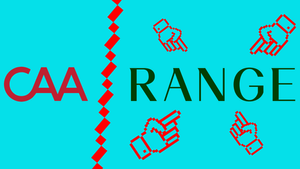Talent agency CAA has sued Range Media Partners, the entertainment firm founded by former CAA agent Peter Micelli, in an explosive lawsuit that makes some big allegations.
It accuses Micelli and the four other former CAA agents involved in setting up Range of stealing confidential business information from CAA as they prepared for the August 2020 launch of their new company. It also claims that Range operates as a talent agency but calls itself a management company so it can avoid the regulation that applies to talent agencies in California.
“Range is an unlicensed talent agency built on deceit”, the lawsuit declares. In early 2020, Micelli and his co-founders “sought to benefit Range by breaching their obligations to CAA and causing other CAA employees to do the same”. Meanwhile, four years on, “Range skirts rules that California legislators and artists’ guilds put in place to protect those working in the entertainment industry”.
Micelli left CAA in 2018 after more than two decades with the agency. He then had a two year stint with eOne before launching Range. However, his co-founders, Jack Whigham, David Bugliari, Michael Cooper and Mick Sullivan, moved straight from CAA to Range.
It’s alleged that, in spring 2020, having already decided that they would launch Range that summer, the four outgoing CAA execs “carried out a scheme designed to give Range an unlawful competitive edge”, by accessing a stack of confidential information about the company they were planning to leave and compete with.
During that time, the lawsuit says, Whigham, Bugliari, Cooper and Sullivan would pose “as loyal CAA members, sitting shoulder to shoulder in confidential CAA meetings about clients and business”, while actually “covertly working to benefit Range and themselves, and to harm CAA”.
Not only were the Range founders “breaching their obligations to CAA”, the lawsuit goes on, but they also “caused other CAA employees to do the same”.
That involved “urging more junior CAA employees to download encrypted messaging apps to avoid CAA detecting their communications and directing CAA employees to export confidential information for delivery” to the personal emails and phones of the Range founders.
Since its launch in 2020, Range has expanded into various aspects of the music and entertainment industry. But, says CAA, it was careful in 2020 to talk about itself as a management and production company, rather than a talent agency.
That partly allowed its founders to claim they were not directly competing with their former employer, but it also has an impact on how the company’s operations are regulated.
In some US states, including California, talent agents are licensed, meaning they must get a licence to trade from the California Labor Commission and comply with relevant rules in the California Labor Code.
Managers are not subject to that regulation providing they are not involved in activity that would classify them as a talent agent in the eyes of Californian law, principally seeking or obtaining employment for their artists.
According to CAA, Range “acts as a talent agency but labels itself a management company”. It cites emails from early 2020 when future Range partners allegedly discussed “looking to exploit the ‘grey area’ between talent agents and managers”.
By not registering as an agency, it goes on, “Range could avoid the rules designed to protect clients” and is able to engage in “lucrative transactions foreclosed to law-abiding talent agencies”.
Legal speaking, CAA accuses Range and its founders of violating the California Business And Professions Code, as well as aiding and abetting breach of fiduciary duties and tortious interference.

